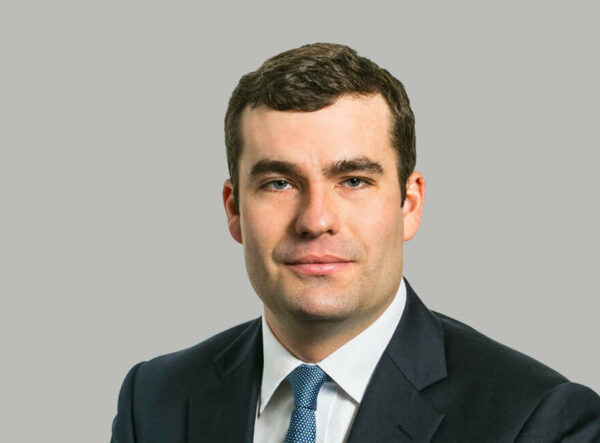ATE and security for costs: Lewis Thermal Limited v Cleveland Cable Company Ltd

This is the third occasion on which I have posted on this blog on the issue of after the event insurance (ATE) policies and the impact which they have on applications for security for costs.
In the first post on 16 November 2017, I praised the judgment of Snowden J in Premier Motorauctions v Pricewaterhouse Coopers for appearing to bring clarity to an area which had for some time struggled with near irreconcilable decisions.
When His Lordship’s judgment was overturned on appeal, with the Court of Appeal favouring an approach which more carefully scrutinised the terms of the ATE policies, I warned of a potential chilling effect which the decision might have on the ability in particular to bring litigation on behalf of insolvent companies.
It took very little time for cases to come to court which referred to and applied the decision of the Court of Appeal in Premier Motorauctions. An application for security for costs was heard in Bailey v GlaxoSmithKline UK Ltd by Foskett J on 7 and 8 November 2017. The application was brought by the defendant against the company funding the claimants’ costs of the litigation under CPR 25.14. Judgment was reserved and, on 23 November 2017, the Court of Appeal gave judgment in Premier Motorauctions. This necessitated further written submissions to be filed. A central feature of the Bailey case was that the claimants had in place an ATE policy.
In Bailey, the ATE policy was not relevant to the jurisdictional part of the test for security for costs as it did not impact upon the respondent funder’s ability to pay the defendant’s costs. Nevertheless, the court considered the existence of the ATE policy to be relevant to the discretionary part of the test.
Foskett J had little hesitation in undertaking the sort of scrutiny of the terms of the ATE policy which had been encouraged by the Court of Appeal in Premier Motorauctions but which Snowden J had guarded against in that same case at first instance.
Interestingly, Foskett J said at paragraph 69 that he accepted the point that no one within the group of claimants would have any interest in obtaining a worthless ATE policy. Equally, there was no hint that the ATE insurers had felt that there were grounds for avoiding the cover, and the fair amount of “loose” talk to which Foskett J had referred had occurred some time ago.
Nevertheless, His Lordship continued that, for those reasons, he did not think it was possible to discount as illusory the prospect of the avoidance of the ATE insurance cover at some stage.
The conclusion then reached was as follows:
“MLS argues that the whole of the £750,000 under the ATE policy should be deducted; the defendant says that none of it should be deducted. Given the considerations to which I referred above (see paras 68–69) I consider that the risk of the ATE policy being avoided at some stage can be reflected by deducting two-thirds of the sum of £750,000 (namely, £500,000) from the amount of security otherwise to be provided. This reflects my assessment that it is more likely that the policy will remain intact and remain available for the payment of part of the defendant’s costs if the defendant is successful, but that there is a more than minimal risk that it will not remain intact.”
Males J also conducted a detailed scrutiny of the ATE policy at issue in St Vincent European General Partner Limited v Bruce Robinson & others. His Lordship there came to the view that an ATE policy which allowed avoidance would be of limited effect at repelling an application for security for costs. After a thorough review of the ATE policy, Males J denied the (albeit fairly limited) security for costs application. Putting all the matters together, he did not think that he was in a position to conclude, and nor had the defendants proved that there was a reason to believe, that the claimant would be able to pay the defendants’ costs of the applications in question, if ordered to do so. The evidence suggested that they would be able to do so by making a claim on the policy which the insurers would pay. Males J considered that the money would then be paid to the claimant’s solicitors and, in accordance with undertakings that had been given, would be held by the solicitors on trust for the defendants in whose favour the costs orders had been made.
A detailed discussion of the principles in this area was undertaken by O’Farrell J in Lewis Thermal Limited v Cleveland Cable Company Ltd. This was a case in which a dormant company was pursuing a claim following an assignment of the cause of action by a company which subsequently entered insolvent liquidation. The claimant had no independent means by which it could pay an adverse costs order but was reliant upon an ATE policy.
The defendant raised a number of concerns about the effectiveness of the ATE policy in providing reassurance that its costs would be paid in the event that the claim failed.
The first was that the policy excluded the Contracts (Rights of Third Parties) Act 1999 and, therefore, denied the defendant a directly enforceable right against the insurer.
The second was that there was an impending risk that the claimant would enter an insolvency process and that the proceeds of any pay-out on the ATE policy would benefit the unsecured creditors of the company as a class rather than the defendant directly.
Third, the scope of the ATE policy was limited on its terms and would not suffice to cover all the anticipated costs of the defendant.
Fourth, the terms of the ATE policy gave rise to a risk, albeit a small risk of avoidance.
O’Farrell J considered these concerns to be well-founded (at paragraph 35):
In my judgment, the ATE insurance policy does not provide adequate security for the defendant’s costs.
This sufficed to establish that the jurisdictional threshold had been crossed in this case. Her Ladyship then proceeded to consider the discretional aspects of the test, concluding that the claim was a speculative one that did not have a real prospect of success because of:
- The lack of evidence setting out the basis on which it was alleged that the defective cables supplied by the defendant led to the loss of business from various department stores.
- The absence of any evidence to show that the claimant had a good or reasonably arguable case that the loss of business had led to its insolvency and subsequent liquidation.
- The absence of any reliable evidence that the value of the claim would be anything near to £8 million claimed.
She considered that:
“In those circumstances, when I come to consider whether or not the claim would be stifled by an order for security, I have to consider that the defendant at present is being required to defend and fund the defence of a speculative claim. I accept Mr. Benson’s submissions that if this were a genuine bona fide case with a real prospect of success, that I should be very cautious before ordering the claimant to provide security, but that is not this case.
Further, the evidence that the claimant shareholders have put before the court shows that there are funds, perhaps not funds to enable them to provide security up to the full £750,000 in relation to the full budgeted costs of the defendant, but certainly some funds that could be made available for security. Funds are, no doubt, going to be made available in order to pay the disbursements that are necessary if the claimant is serious about pursuing this claim.”
As a result, Her Ladyship concluded that an order for security for costs should be made.
The authorities set out in this blog demonstrate a ready willingness on the part of courts to follow both the principles and methodology set out by the Court of Appeal in Premier Motorauctions. Where claimants seek to rely on ATE policies to oppose security for costs applications, courts will inevitably examine carefully the detailed terms of those policies and the factual matrix in which the policies were issued. It seems that courts will be slow to conclude that an ATE policy provides such reassurance to the defendant that no security at all should be granted.
The approach taken by Foskett J in Bailey is to be applauded and represents a sensible compromise which might mitigate some of the chilling effects about which I warned in my earlier posts. If courts are prepared to conduct a line-by-line review of ATE policies, they ought, at the end of that process, and upon reading evidence of the parties, to form a quantified assessment of the risk that the policy will be avoided or will in any event prove ineffective from the perspective of the defendant. That assessment can thereafter be converted into a form of discount in the amount of security required. In such circumstances, even if parties recognise that giving security is, on the facts, inevitable, they might reasonably reduce the extent of the security they are required to give by taking out an ATE policy.
It is not possible at this stage to identify, with any precision, the extent to which the decision of the Court of Appeal in Premier Motorauctions has limited the scope of insolvency practitioners to pursue claims on behalf of insolvent companies. It will undoubtedly have impacted upon the negotiation of the terms of ATE policies between the IPs and the insurance providers. It is difficult to see how this can do anything other than increase the costs associated with pursuing such claims.
This article was first published on Practical Law’s Dispute Resolution Blog.
Disclaimer
This content is provided free of charge for information purposes only. It does not constitute legal advice and should not be relied on as such. No responsibility for the accuracy and/or correctness of the information and commentary set out in the article, or for any consequences of relying on it, is assumed or accepted by any member of Chambers or by Chambers as a whole.
Contact
Please note that we do not give legal advice on individual cases which may relate to this content other than by way of formal instruction of a member of Gatehouse Chambers. However, if you have any other queries about this content please contact:


